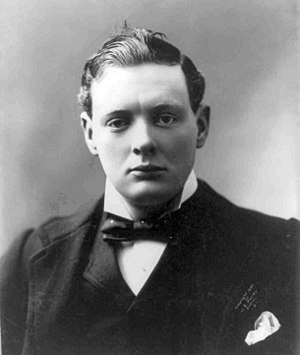Risk takers and the military
 Image via Wikipedia
Image via WikipediaSenior Airman Michael Kearns had been back from Iraq for only two months when he was pulled over on a Florida highway for going more than 120 miles per hour on his new Suzuki. He knew his motorcycle riding was reckless, but after living through daily mortar attacks on his base in Iraq, he said he needed the adrenaline rush.There is more.
“When you get here, there’s nothing that’s very exciting that keeps your pulse going,” Airman Kearns, 27, said in a recent interview.
His experience is so common that the United States military, alarmed by a rising suicide rate and the record number of Iraq and Afghanistan veterans who die in highway accidents back home, is asking a provocative new question: Nearly a decade into two bloody wars, are the armed forces attracting recruits drawn to high-risk behavior?
...
The military says the people who enlist to serve their country have always included plenty of adrenaline addicts, which recruiters say is a good thing when troops are needed to jump out of airplanes and go on raids in Afghanistan. But military researchers say they have been compelled to take a deeper look at the psychological demographic of an all-volunteer force during the most prolonged period of combat in American history.
...
Beyond that, Colonel Shahbaz said, the Army wants to know whether risk-takers are more likely to commit suicide or die in accidents, and whether a predisposition to risk-taking is increased by combat.
To try to find answers, this fall the Army and the National Institute of Mental Health are beginning a five-year study of 90,000 active-duty soldiers and all new Army recruits, 80,000 to 120,000 per year. The recruits are to answer confidential surveys that Colonel Shahbaz said might include questions on whether they owned motorcycles, used drugs or liked to bungee-jump. There will be cognitive tests to measure reactions to stress as well as an in-depth look at a recruit’s family background and genetics.
“It will give us an assessment of someone’s cognitive style and whether they have a history that draws them to high-risk behaviors,” said Thomas R. Insel, the institute’s director.
...
Of course the troops are risk takers. A risk adverse person is not likely to stick his head out of a hole when the bullets are flying. Winston Churchill, talking about his experience in the Boors War said, "There is nothing quite as exhilarating as being shot at, and missed."
What the military needs to get a better handle on is channeling risk taking when troops are out of the combat zone. There are several sports from ocean racing sailboats to mountain climbing that can feed the need for adrenaline in a much safer way than driving a motorcycle 120 mph on a highway. It is much easier than most people think to get a crew slot on an ocean racing sailboat. Skippers are always looking for athletic crewmen and most yacht clubs have bulletin boards where you can sign up or volunteer.
Some professions attract risk takers. Being a bond trader comes to mind. Entrepreneurs are usually risk takers. Police and firemen can also be risk takers. Directing post service careers toward these professions maybe one solution to the problems

Comments
Post a Comment